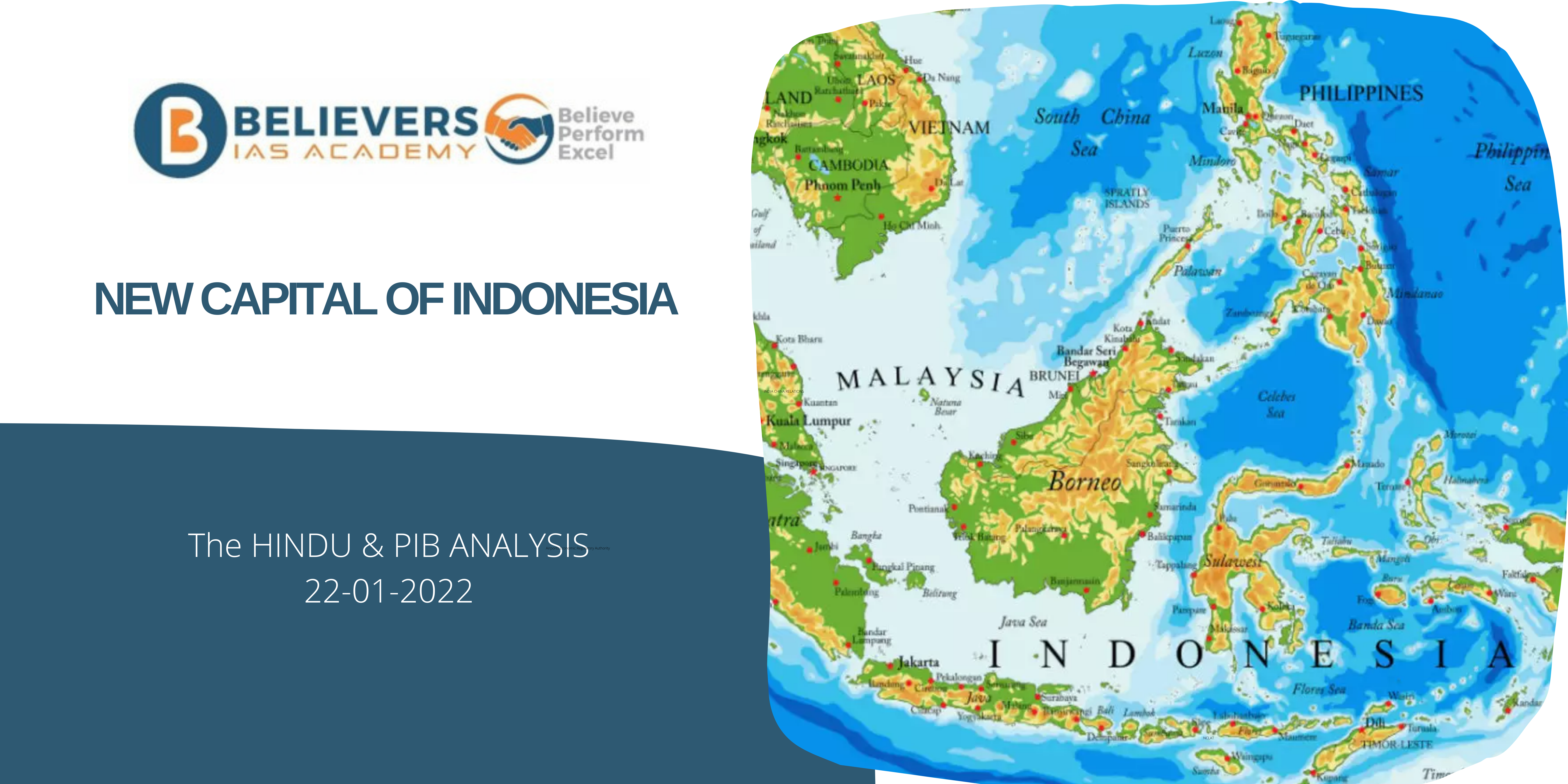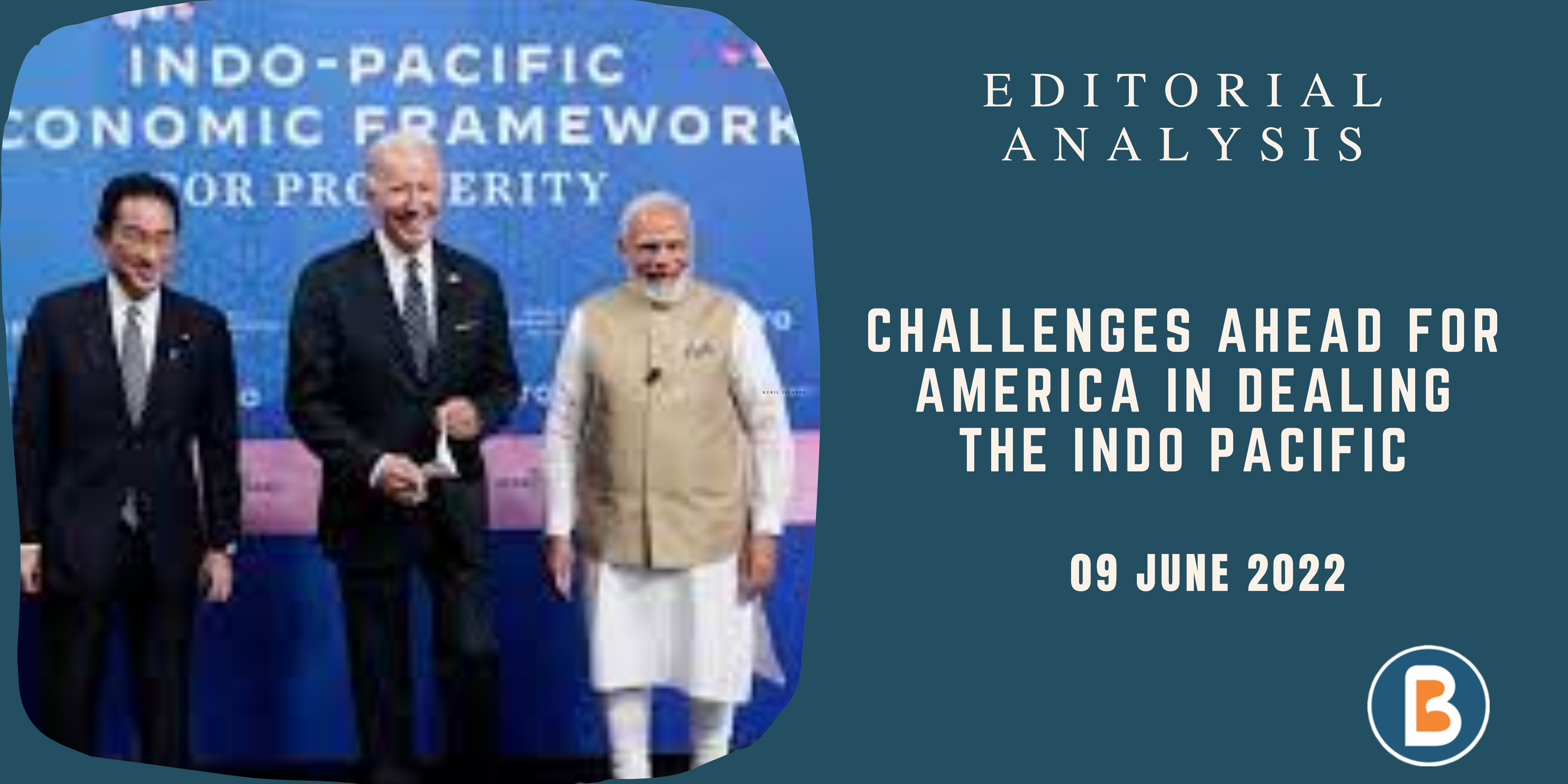New capital of Indonesia
Context:
- The capital of Indonesia is being shifted from Jakarta to East Kalimantan, and will be called Nusantara.
- The Indonesian Parliament has passed a law to relocate the country’s capital from Jakarta to Nusantara.
Why is Indonesia moving the capital from Jakarta?
- The plan was formulated as Jakarta is prone to flooding amid climate change. The sinking megacity also suffers from chronic congestion and air pollution.
- The relocation of the capital city to Nusantara is based on several considerations, regional advantages, and welfare and with a vision of the birth of a new economic centre of gravity in the middle of the archipelago.
- Jakarta sits on the swampy ground near the sea – making it especially prone to flooding – and is one of the fastest-sinking cities on Earth, according to the World Economic Forum (WEF).
- It has been dropping into the Java Sea at an alarming rate due to the over-extraction of groundwater.
- Jakarta is also one of the world’s most overpopulated urban regions. It is home to more than 10 million people, with an estimated 30 million in the greater metropolitan area, according to the United Nations.
About Nusantara
- The name of the new city has been chosen by Widodo. It is a Javanese term which translates to “archipelago” in the Indonesian language. It is located within the jungle of Kalimantan on Borneo island.
- According to data from the National Planning and Development Agency, the total land area for the new capital city will be around 256,143 hectares (around 2,561 square kilometres) – almost all of it converted from the forest area.
- Indonesia owns the majority of Borneo, the world’s third-largest island, with Malaysia and Brunei each holding parts of its northern region.
What does the latest bill do?
- The bill has now given the green light to Mr. Widodo’s long-discussed move and outlined a plan to shift the capital in five stages.
- Planning Minister Suharso Monoarfa told Parliament the first stage, to be completed by 2024, will focus on basic infrastructure such as new roads to provide access to the site.
- The last stage will be finished in 2045. The project is estimated to cost more than $30 billion.
Source: THE HINDU.




